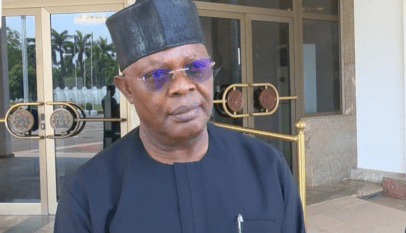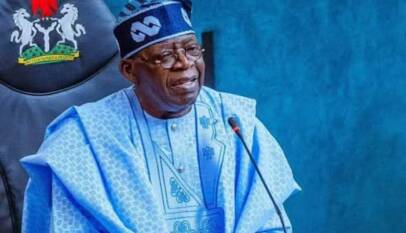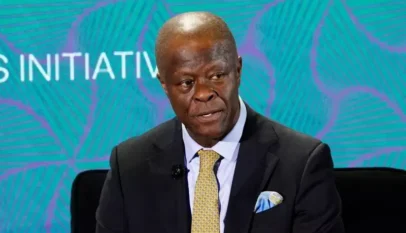
Oghenekevwe Kofi, Ericsson LLM
As the world increasingly embraces digital finance, Nigeria has emerged as one of the leading nations adopting Bitcoin. The decentralized cryptocurrency, created in 2009, offers peer-to-peer transactions without the need for banks, making it a popular choice for many Nigerians seeking financial freedom. However, this journey has not been without challenges. Bitcoin has had a contentious relationship with the Nigerian government due to the country’s complex financial and economic landscape.
Despite the Central Bank of Nigeria’s (CBN) restrictions on cryptocurrency transactions, Nigerians have persisted, driven by inflation, limited access to banking, and a desire for more inclusive financial tools. This tension highlights the delicate balance between citizens’ demand for decentralized financial options and the government’s concerns about potential financial risks.
So, how can Nigeria benefit from the Bitcoin surge? Can the country leverage cryptocurrency to empower its citizens, increase financial inclusion, and strengthen its economy?
1. Increasing Financial Inclusion
Nigeria is home to a significant unbanked population. Approximately 40% of Nigerian adults lack access to formal banking services, which limits their ability to participate in the economy. Bitcoin’s decentralized nature allows Nigerians to access the global financial system without needing a traditional bank account. Peer-to-peer (P2P) platforms have flourished in Nigeria, enabling individuals to buy and sell Bitcoin directly, bypassing banks entirely.
By embracing Bitcoin-friendly policies, Nigeria could offer millions of people an easy way to save, transfer, and grow their money. This could help those who are financially underserved achieve greater economic stability and independence.
2. Supporting Remittances and Lowering Transaction Fees
Nigeria is one of the largest recipients of remittances in Africa, with millions of Nigerians receiving funds from family members abroad. Traditional remittance channels can be costly, with fees reaching as high as 10% for some transactions. Bitcoin offers a much cheaper alternative, allowing Nigerians to receive funds almost instantaneously with minimal fees.
Encouraging the use of Bitcoin for remittances could help Nigerian families retain more of their hard-earned money. It could also increase the frequency of transactions, leading to greater financial fluidity within Nigerian households.
3. Providing a Hedge Against Inflation and Currency Depreciation
Nigeria has faced significant inflation and currency devaluation in recent years. As the naira continues to lose value, many Nigerians are looking for ways to preserve their wealth. Bitcoin, often referred to as “digital gold,” is seen as a hedge against inflation due to its limited supply of 21 million coins.
Allowing citizens to hold and use Bitcoin could provide an asset that maintains its value during periods of economic uncertainty. This would enable Nigerians to save without the fear of losing purchasing power.
4. Encouraging Innovation and Technological Growth
Nigeria is home to a growing community of young, tech-savvy individuals eager to innovate and build on emerging technologies. The popularity of Bitcoin and blockchain technology could stimulate new educational and employment opportunities, particularly in sectors like software development, blockchain solutions, and digital finance.
By establishing a regulatory framework that supports safe Bitcoin transactions, the government could foster an environment that attracts both global and local investors. This could position Nigeria as a hub for blockchain innovation in Africa and help address the country’s high unemployment rate by creating new career paths in a rapidly expanding field.
5. Strengthening Nigeria’s Economic Resilience
The Nigerian economy is heavily dependent on oil exports, making it vulnerable to fluctuations in global oil prices. Bitcoin offers an alternative investment avenue that could help diversify the economy. If the government explored options for accumulating Bitcoin or encouraging Bitcoin-based economic activities, it could bolster the country’s resilience against oil price shocks and other economic downturns.
By incorporating Bitcoin into the economy, Nigeria could improve its overall financial stability and potentially even accumulate Bitcoin as a reserve to counteract currency depreciation.
6. Enhancing Transparency and Reducing Corruption
Blockchain technology, which powers Bitcoin, is known for its transparency. Transactions on the Bitcoin network are public and immutable, making it easier to track and reduce instances of financial misconduct. If the Nigerian government adopted blockchain for certain types of public transactions or funds, it could increase accountability and reduce corruption.
Additionally, if Nigerians increasingly use Bitcoin for payments, it could encourage transparency in private-sector transactions, promoting a culture of openness and accountability that benefits both businesses and individuals.
Conclusion
The surge in Bitcoin adoption presents Nigeria with a unique opportunity to modernize its financial system, empower its citizens, and strengthen its economy. While there are legitimate concerns surrounding cryptocurrency, including risks of fraud and financial instability, a well-designed regulatory approach could address these challenges while harnessing Bitcoin’s potential benefits.
To move forward, Nigeria could consider creating a clear regulatory framework that fosters innovation while protecting consumers. By embracing Bitcoin and other digital currencies in a balanced manner, Nigeria can position itself as a leader in Africa’s digital economy, equipping its citizens with the tools to navigate economic challenges and capitalize on the future of finance.


































